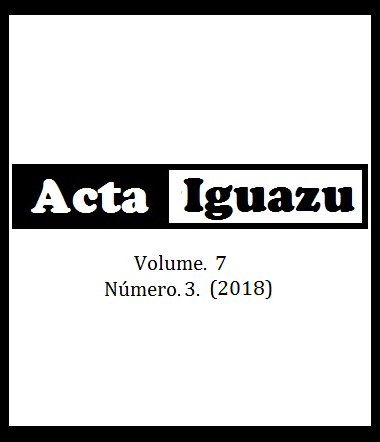Giberelic acid does not promote positive effect on seedlings of 'Okinawa' peach rootstock
DOI:
https://doi.org/10.48075/actaiguaz.v7i3.17110
Supporting Agencies
Keywords:
Prunus persica, plant regulator, vegetative propagationAbstract
The quality of seedlings is essential for a successful crop cycle, since they are the basis of the orchard; and directly linked to its future performance. In peaches, obtaining rootstock is one step process for the production of the plants, which can be often increased by using plant growth regulators. In this way, this study aimed to evaluate the response of gibberellic acid to grow ‘Okinawa’ peach seedlings rootstock. The experimental design was a randomized complete block, consisting of four treatments (0, 25, 50 and 75 mg L-1 GA3); three subplots (30, 60 and 90 days after transplanting the seedlings) in 10 repetitions with 30 plants per treatment. All the experiment was conducted in the nursery with shade cloth (70%). Evaluations consisted of plant height (cm); root length (cm); stem diameter (mm); leaf area; specific area and leaf number; leaf matter; fresh and dry stem matter (g); fresh and dry root matter (g). Thereby, doses of gibberellic acid did not present any statistical significance on the growth of ‘Okinawa’ peach seedlings rootstock; thus it should be considered future evaluation of this phytoregulator at higher doses.Downloads
Published
18-10-2018
How to Cite
GONÇALVES, B. H. L.; SOUZA, J. M. A.; LEONEL, S.; SILVA, M. de S.; BOLFARINI, A. C. B.; MODESTO, J. H. Giberelic acid does not promote positive effect on seedlings of ’Okinawa’ peach rootstock. Acta Iguazu, [S. l.], v. 7, n. 3, p. 27–36, 2018. DOI: 10.48075/actaiguaz.v7i3.17110. Disponível em: https://saber.unioeste.br/index.php/actaiguazu/article/view/17110. Acesso em: 24 dec. 2025.
Issue
Section
ARTIGOS CIENTÍFICOS
License
Aviso de Direito Autoral Creative Commons
Política para Periódicos de Acesso Livre
Autores que publicam nesta revista concordam com os seguintes termos:
1. Autores mantém os direitos autorais e concedem à revista o direito de primeira publicação, com o trabalho simultaneamente licenciado sob a Licença Creative Commons Attribution que permite o compartilhamento do trabalho com reconhecimento da autoria e publicação inicial nesta revista.2. Autores têm autorização para assumir contratos adicionais separadamente, para distribuição não-exclusiva da versão do trabalho publicada nesta revista (ex.: publicar em repositório institucional ou como capítulo de livro), com reconhecimento de autoria e publicação inicial nesta revista.
3. Autores têm permissão e são estimulados a publicar e distribuir seu trabalho online (ex.: em repositórios institucionais ou na sua página pessoal) a qualquer ponto antes ou durante o processo editorial, já que isso pode gerar alterações produtivas, bem como aumentar o impacto e a citação do trabalho publicado (Veja O Efeito do Acesso Livre).
Licença Creative Commons
Esta obra está licenciada com uma Licença Creative Commons Atribuição-NãoComercial-CompartilhaIgual 4.0 Internacional, o que permite compartilhar, copiar, distribuir, exibir, reproduzir, a totalidade ou partes desde que não tenha objetivo comercial e sejam citados os autores e a fonte.


